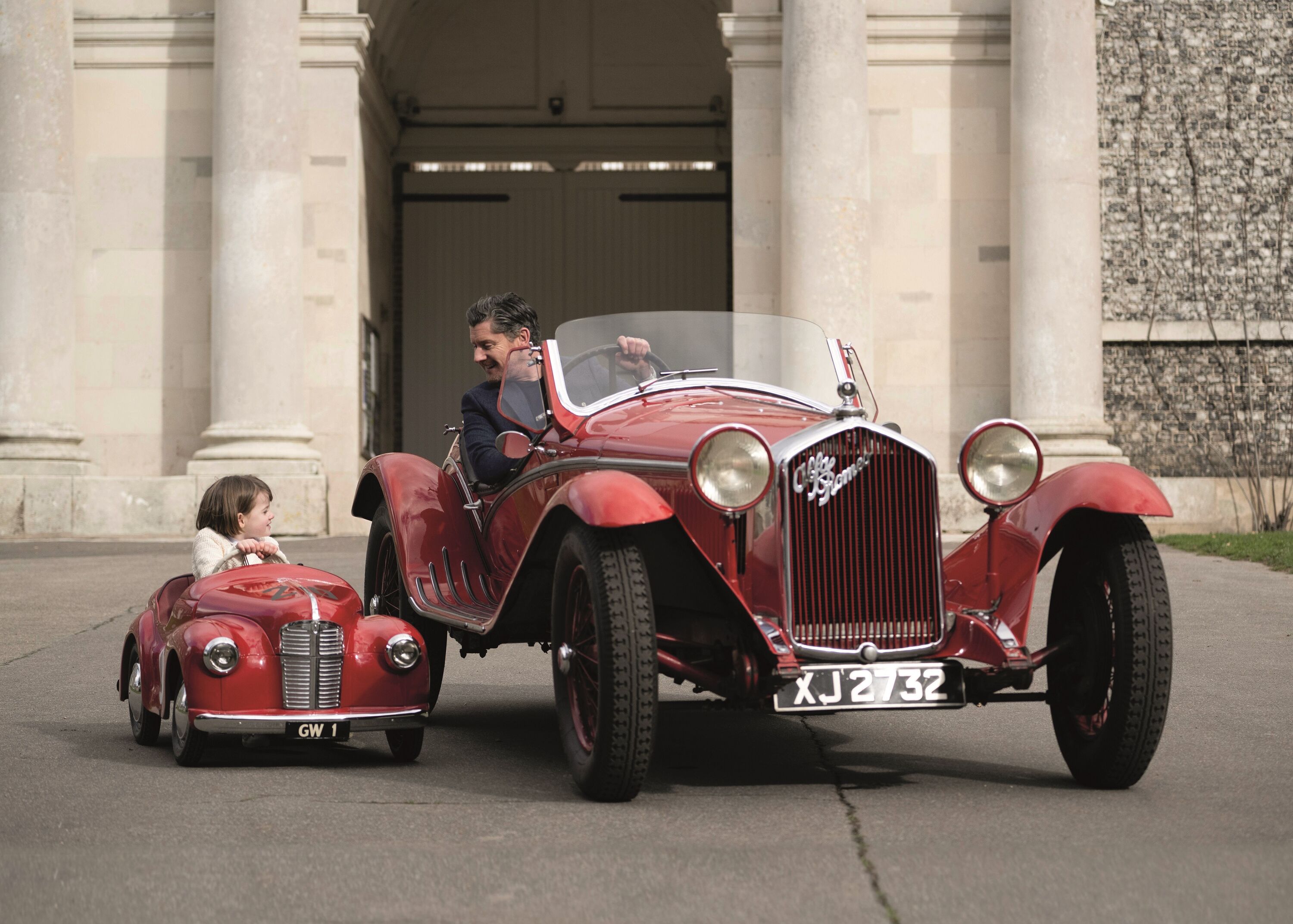Thank Frankel it's Friday: The best Le Mans stories decade-by-decade
 Andrew Frankel
Andrew Frankel
I am aware that many of you will be reading this from a campsite in north west France, awaiting the start tomorrow of the world’s greatest race. So to ensure appetites are suitably whetted here is a selection, one for each decade, of what I consider to be the best Le Mans stories of all. Some might be familiar to you but I hope not all.
1920s
Heroism was part of the Le Mans story from the very first race. The fastest car in the field and the only foreign entrant was John Duff’s Bentley. But it was ill prepared for the roughness of the circuit and soon enough a stone punctured the fuel tank, stranding Duff four miles from the pits. Undeterred, he ran all the way to alert his co-driver Frank Clement who stole a policeman’s bicycle and rode the wrong way around the track to repair the tank, some say with a wooden bung, others merely chewing gum, and continued racing. Just imagine if you will, pedalling down towards Arnage with the race going on around you. Their efforts were not repaid: although the car smashed the lap record, too much time had been lost to do better than fourth.
1930s
Raymond Sommer is, I think, the greatest of all unsung heroes of motor racing. He was the first person to win a race in a Ferrari, single-handedly beat the might of the works Alfa team both before and after the war and on occasion could beat Nuvolari in a straight fight. By 1932 he’d done Le Mans once but retired. He’d already won his class at the Spa 24 hours in a big old Chrysler that year but for Le Mans, he went and bought an Alfa Romeo 8C and teamed up with Luigi Chinetti to do the race. His car was nothing like as fast as the factory Alfa Monzas up the front so at the start he let them run away and wear each other out. Unfortunately, Chinetti got ill after only three hours driving, so Sommer drove alone through the night and the following day as car after car fell out of the race. It was only his second Le Mans and he won it despite being asphyxiated by a broken exhaust.
1940s
Herr Hitler ensured there weren’t too many opportunities for great Le Mans in the 1940s, but the 1949 race does warrant a mention here. Seventeen years after illness sidelined Sommer’s team-mate Chinetti, now it was Chinetti’s time to step up to the plate.
His car was a Ferrari and before you think that automatically confers some kind of unfair advantage, remember the company was barely two years old, his 166MM displaced just 2-litres and was entered not by the Scuderia but an English gent called Lord Selsdon. Unfortunately, his aristocratic patron got sick after just two hours, leaving Chinetti 22 to complete on his own, the longest successful stint ever at Le Mans. It was also the first time a marque had won the race at its first attempt (if you exclude Chenard et Walcker that won the inaugural event), a feat repeated just once since, by McLaren in 1995.
1950s
No shortage of choice here. I’d like to say 1953 and the tale of how Duncan Hamilton and Tony Rolt won after being found drunk in a pub – their car having been excluded in scrutineering – and told they were racing after all, but it turns out it’s not true. So instead I’ll go for 1959 because Aston Martin are on pole in the GTE Pro category this weekend and I think its sole outright triumph in the race needs recalling.
As for the race and Carroll Shelby and Roy Salvadori’s win, I’d ask you to bear in mind that Shelby had a heart condition and that they vanquished an almost unimaginably strong Ferrari contingent in the DBR1 that was already in its fourth season of racing. The plan had been only to do Le Mans that year, in the end, Aston won the World Sports Car Championship.
1960s
An entire decade passed when if your car didn’t begin with an F, you might as well have gone home. People always go on about how Ford vanquished Ferrari but the score of the decade reads six for Ferrari to four from Ford. Ford’s failure in 1964 was entirely understandable, but it really should have won in 1965. Then again Ferrari was scarcely any better and was saved only by two private 250 LMs that kept going when the factory prototypes wilted.
But we can’t leave without at least mentioning 1969 and the closest non-staged finish to date. History recalls that Jacky Ickx’s Ford GT40 beat Hans Herrmann’s Porsche 908 by a couple of hundred yards and the cat and mouse slipstreaming game that played out over those last few laps. But the race was almost decided 24 hours earlier when Ickx alone refused to sprint across the track in protest at the dangers of the traditional Le Mans start. Had he lost the race by those few yards instead of winning it, it would have been regarded as the greatest own goal in the history of racing.
1970s
I’m going for Paul Newman’s run to second place in 1979 not just for what the film star did, but the class with which he did it. Driving the notoriously difficult Porsche 935 in a largely drenched race, he did his stints without complaint, was only a little slower than team owner Dick Barbour (if a little further off team superstar Rolf Stommelen) and when asked about his performance at the end of it replied ‘I didn’t drive too well today.’ Everyone else thought he was a hero.
1980s
So much choice here. Porsche coming first, second and third in 1982 with a car that hadn’t turned a wheel four months before the race, Ickx and Bell’s incredibly comeback drive to just fall short of victory in 1983, or Stuck staying out on slicks in the wet to try and hunt down the leading Jaguar in 1988 are all worthy of mention. But it’s that Jaguar win that does it for me and the way the team managed the final laps. Truth is the XJR-9LM’s gearbox had largely disintegrated but TWR managed to make it look like the car was slowing in the final laps because the race was under control and already won. Had it not been driven that way, it would likely not have finished at all.
1990s
We are spoiled for choice again. Mazda’s win in the rotary-engine 787B in 1991 is a clear contender as is JJ Lehto’s drive in the wet in the factory McLaren in 1995. Some say there were times he was 30 seconds a lap quicker than anyone else at night. But let’s go instead for 1997, and the victory of the Porsche WSC95. This win was remarkable for many reasons, perhaps the most notable being the car had started life in 1991 as a Jaguar XJR-14. Run by Joest and backed by the factory it had already won in 1996 but in 1997 Porsche wanted all efforts focussed on its GT1 contender. In fact, it didn’t want the WSC95 to race at all. Unfortunately, it had already given the car to Joest as a present for winning the previous year so couldn’t stop it. In the end, the factory effort failed and the car Porsche didn’t want to race spared its blushes after all.
2000s
It has to be Bentley again. But not the trouble-free sail to victory with no factory Audis to spoil the party in 2003, but the third place achieved two years earlier. This was Bentley’s first trip to France in 71 years and the plan was to get one car home in the top ten. But the lead car went out in the early evening of this hideously wet race when a gear change actuator became waterlogged and it seems the same fate would befall the second car. In fact, it was fixed with the top from a bottle of mineral water. Even now there are people at Bentley regard that podium finish as sweeter than the eventual victory.
2010s
It has to be last year’s race which was in the bag for Toyota with three minutes to go. Actually even now the memory of the car slowing to a halt on the pit straight with just one lap to go is too painful to recall. Which is why, and love Porsches though I do, I hope with all my heart Toyota finally does what it has come so close to achieving so many times in the past, and earns itself the outright Le Mans win it so richly deserves.
Photography courtesy of LAT Images
andrew frankel
Le Mans

Andrew Frankel
Thank Frankel It's Friday: Why Le Mans 1988 was the greatest

Andrew Frankel
Thank Frankel it’s Friday: Why didn’t Moss win Le Mans?

Andrew Frankel
Thank Frankel it's Friday: racing a Porsche 904 at Le Mans was one of my greatest experiences




























































